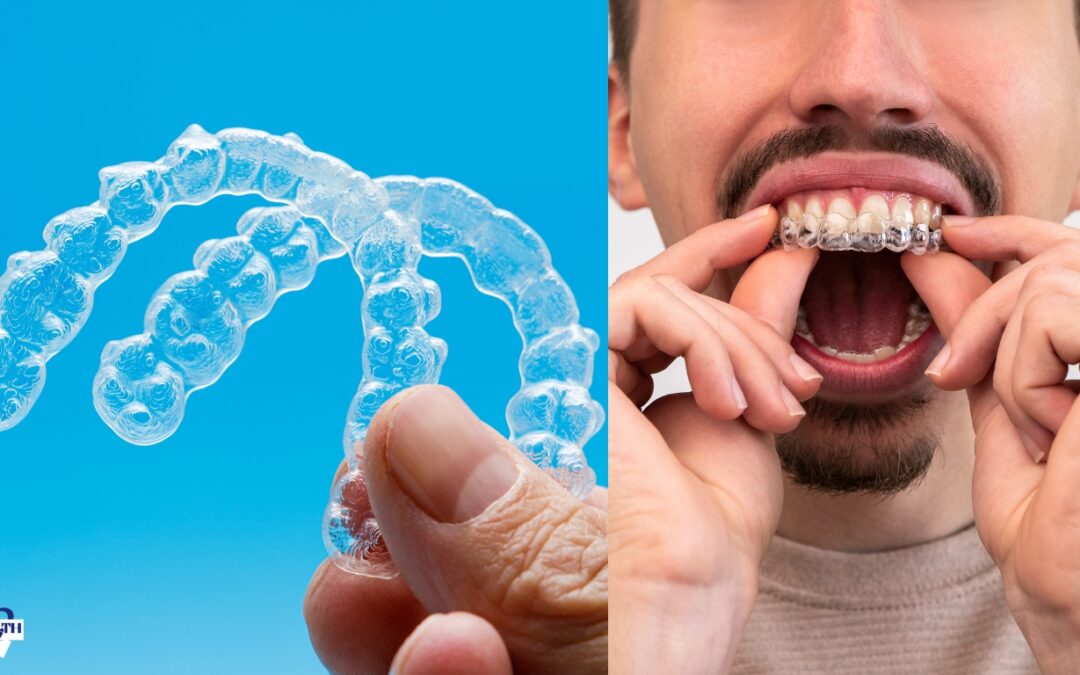Can Invisalign fix teeth that stick out? When it comes to dental treatments, Invisalign has become a revolutionary choice for people looking for a discrete and efficient way to straighten their teeth. A frequent worry among the public is whether teeth that protrude can be straightened using Invisalign. We will discuss the function of Invisalign.
Table of Contents
How well it corrects overjet teeth, and other related topics in this post.
Causes of teeth sticking out
The protrusion, or teeth protruding out, is a problem that has several origins, all of which affect how the teeth are positioned and aligned. Genetics are important because jaw size and shape can be inherited, which affects how teeth grow and align. People can inherit protruding teeth if they have a family history of the condition.
Overcrowding is another prevalent condition that causes teeth to protrude. Teeth may protrude or twist as they emerge if the jaw does not have enough room for them to grow normally. Tooth protrusion may result from childhood activities such as thumb-sucking or continuous use of pacifiers, which can also impact tooth alignment.
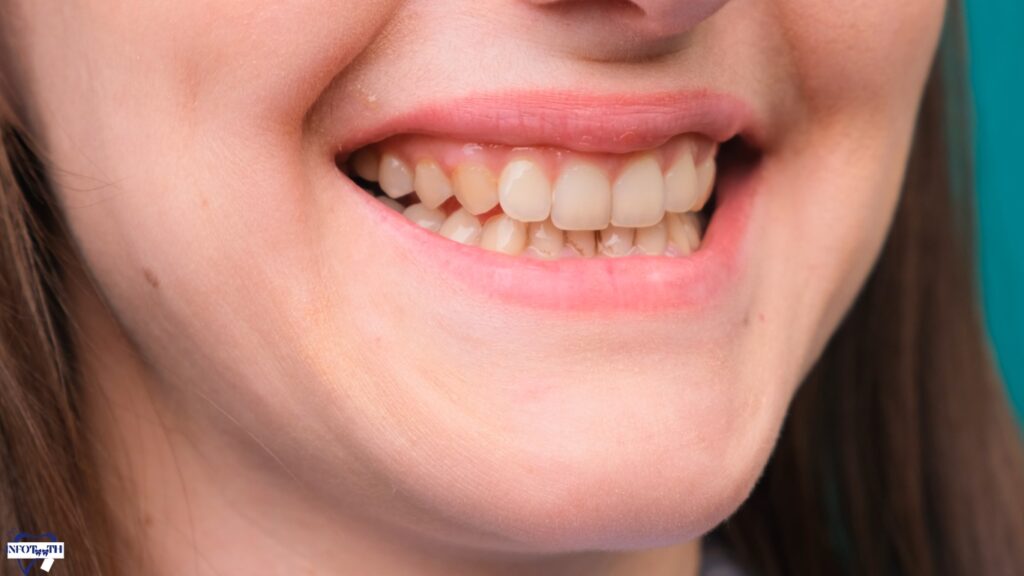
Furthermore, protruding teeth may be the result of differences in the dimensions of the upper and lower jaws. A significant misalignment could result from the upper teeth extending past the lower ones due to this imbalance.
How Invisalign works on Dental Health?
The innovative orthodontic procedure Invisalign gradually moves teeth into the proper positions by using a series of transparent, custom-made aligners. This novel method not only takes care of aesthetic issues but also significantly improves general oral health.
Correcting misalignments, such as protruding teeth, which can affect bite alignment and jaw function, is a crucial part of how Invisalign promotes oral health. Invisalign helps to enhance the overall functionality of the bite by gently moving teeth into their ideal locations. This lowers the chance of problems like uneven tooth wear and jaw pain.

Invisalign aligners’ detachable design is another factor that promotes better oral health. Invisalign makes it simple for people to keep up their oral hygiene regimen by removing the need for brackets and wires, unlike traditional braces. Throughout treatment, this lowers the risk of gum disease, cavities, and plaque accumulation.
What are the Advantages of Can Invisalign fix teeth that stick out ?
Discreet and Invisible:
The discreetness of Invisalign is one of its main benefits. Compared to traditional braces, transparent aligners are more cosmetically pleasing because they are almost undetectable. People can receive orthodontic treatment without having to deal with the obvious look of metal brackets and wires.
Aligners that can be taken out:
Invisalign aligners can be taken out, offering ease and flexibility. Throughout treatment, this function makes it simple for patients to remove their aligners for eating, brushing, and flossing, encouraging improved oral hygiene.
Wear Comfortably:
Because the aligners are composed of smooth, cozy materials, the discomfort that comes with wearing traditional braces is reduced. An even more enjoyable orthodontic experience is provided by the absence of wires and brackets that might irritate teeth.
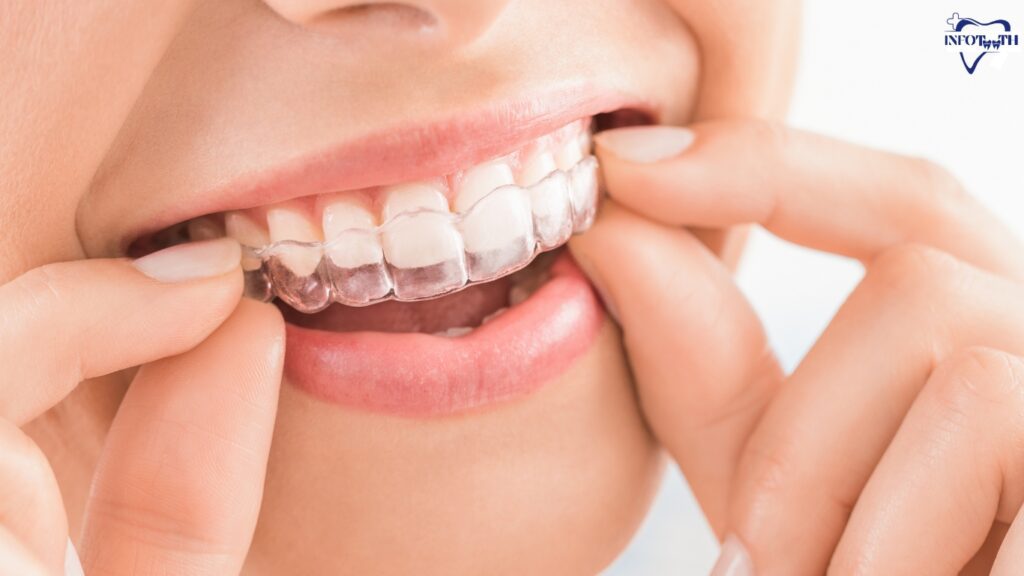
Reduced therapy Time:
Compared to traditional braces, Invisalign therapy frequently has a shorter duration. Results are achieved more quickly and effectively thanks to the personalized treatment plan and the flexibility to make small changes as needed.
Easy Maintenance:
Cleaning Invisalign aligners only requires a quick brushing and rinsing procedure. Throughout the treatment, this simplicity of maintenance promotes improved dental health overall.
Less Dietary Restrictions:
Invisalign patients can indulge in their favorite foods without worrying about breaking their braces, unlike those who wear traditional braces. Because the aligners are removable, there is no need to worry about food getting trapped or creating issues.
Decreased Un-comfort:
There are no metal wires to tighten or loosen when using Invisalign. As opposed to the regular adjustments needed for traditional braces, the aligners’ mild pressure causes less discomfort.
Customized Care:
An Invisalign treatment plan is created specifically for each patient, taking into account their particular dental requirements. Because the aligners are manufactured to order, orthodontic correction is more focused and successful. They are specifically designed to treat certain alignment problems.
Can Invisalign fix crooked teeth?
Invisalign, in contrast to traditional braces, uses clear, detachable aligners to gently and progressively move teeth into the desired position. Since each person’s aligners are manufactured to order, a precise and comfortable fit is guaranteed. Oral health and appearance can be greatly impacted by crooked teeth, which are frequently brought on by genetics or abnormalities in the development of the jaw.
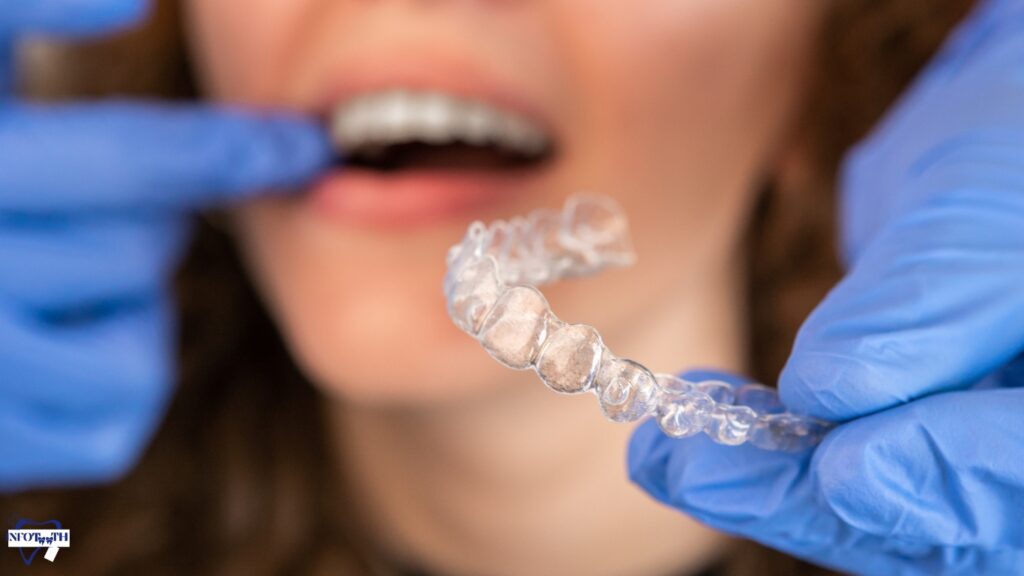
By providing a discreet and aesthetically acceptable substitute, Invisalign enables people to straighten their teeth without the noticeable presence of metal brackets. Can Invisalign fix teeth that stick out? Regular modifications are made during the treatment procedure, which offers a predictable and controlled route to straighter teeth. Because of its effectiveness, Invisalign is a well-liked option for people looking for a cutting-edge, practical, and almost unnoticeable way to straighten their crooked teeth.
Can Invisalign fix protruding teeth?
With Invisalign aligners, protruding teeth—which are frequently the result of genetics or developmental problems—can be effectively treated by means of the regulated force they apply. For those looking for an orthodontic solution that is more visually attractive, Invisalign offers a discreet and almost invisible treatment alternative in contrast to traditional braces. Can Invisalign fix teeth that stick out? Since each patient’s dental structure is different, the aligners are made to fit, providing a customized solution to correct projecting teeth.
A thorough consultation, a customized treatment plan, and routine check-ins to track improvement are all part of the process. For people seeking a contemporary and practical orthodontic option to correct projecting teeth, Invisalign is the choice of many because of its ability to improve dental hygiene, comfort, and smile appearance.
Can Invisalign fix missing teeth?
Regrettably, missing teeth cannot be fixed with Invisalign despite its remarkable ability to realign crooked teeth. Using a set of clear aligners, Invisalign is intended to realign teeth that are already in place progressively. Can Invisalign fix teeth that stick out, It does not, however, remedy the lack of teeth. Alternative dental options, including dental implants, bridges, or dentures, are more appropriate in circumstances where teeth are absent.
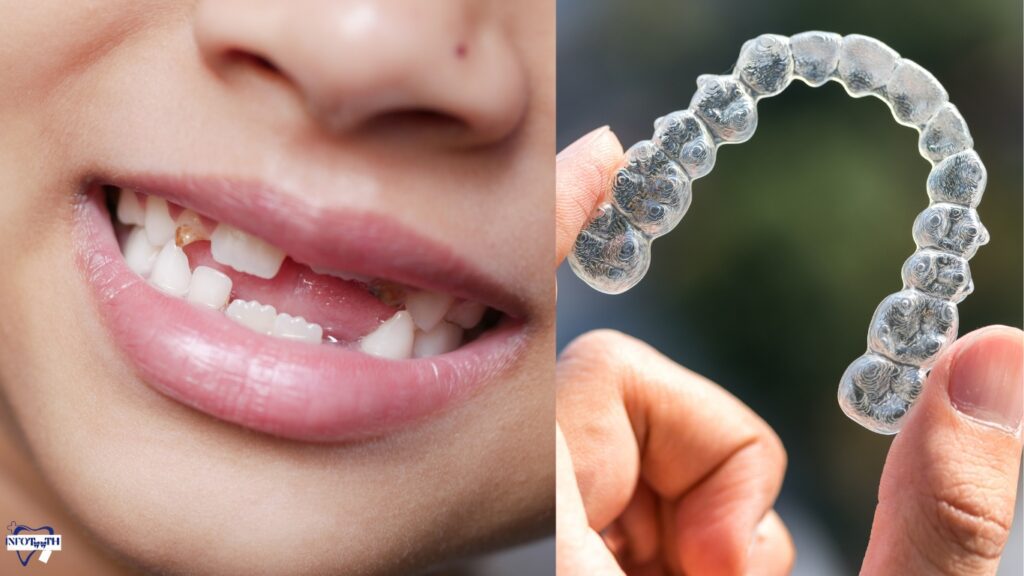
The goals of these treatments are to improve general oral health, replace lost teeth, and restore functioning. Even though Invisalign is a great solution for a variety of orthodontic problems, Can Invisalign fix teeth that stick out it’s crucial to speak with a dentist to determine the best course of action when it comes to missing teeth. Comprehending the constraints associated with Invisalign guarantees that patients have customized dental care that corresponds with their requirements and objectives.
Can Invisalign move teeth up and down?
Vertical movements, such as moving teeth up or down, are among the dental misalignments that Invisalign is intended to correct successfully. Can Invisalign fix teeth that stick out? The teeth are gradually and carefully forced into the proper position by the transparent aligners. If a tooth has to be lowered or lifted, Invisalign can make the necessary modifications with a personalized treatment plan.
Overbites, underbites, and open bites are just a few of the malocclusions that this cutting-edge orthodontic treatment may treat. A succession of aligners, each slightly modified to facilitate the necessary movements, are used in the treatment process. Because of this, those who want to adjust teeth that are positioned too high or too low can take advantage of Invisalign’s flexibility and precision, which makes it a covert and comfortable substitute for traditional braces.
What Should I do If Invisalign ruined my teeth?
If you are unfortunate enough to discover that Invisalign looks to have negatively affected your teeth, you need to act quickly. First and foremost, get in touch with your orthodontist right away to voice your worries and arrange for an examination. The cause of the problem and the required actions for resolution can be ascertained with the assistance of a professional evaluation. Can Invisalign fix teeth that stick out, It may be necessary in some circumstances to make changes to the treatment plan or switch to a different set of aligners.
Prioritize your dental hygiene as well by continuing to brush and floss on a regular basis. Observe any particular guidelines your orthodontist may have given you for maintaining your teeth both during and after Invisalign therapy. Can Invisalign fix teeth that stick out? Getting a second opinion from a different licensed dentist can also provide insightful information and possible treatments. Recall that prompt communication with your orthodontic specialist is essential to resolving and minimizing any issues pertaining to your Invisalign treatment.
What can Invisalign not fix?
Although it has drawbacks, Invisalign is a very good orthodontic treatment for treating a variety of dental conditions. Its incapacity to handle severe orthodontic cases with excessive misalignments or intricate bite problems is a major drawback. People who have severe underbites, overbites, or instances requiring extensive tooth rotation may not be candidates for Invisalign.
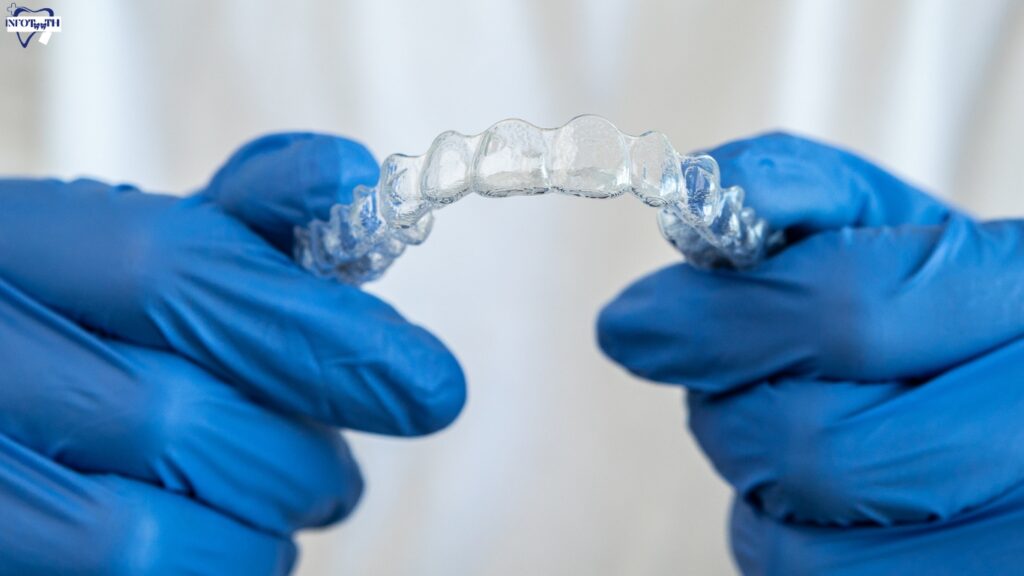
Furthermore, dental issues resulting from skeletal disparities are not intended to be treated by Invisalign. Problems with the structure of the jawbone, like a significant under-jet or overjet, might require orthodontic procedures other than braces.
Furthermore, Invisalign is not a treatment for dental issues, including decay, gum disease, or tooth loss that are unrelated to alignment.
Conclusion
To sum up, Invisalign has shown to be a dependable and successful method of straightening crooked teeth. It is a well-liked option for people looking for orthodontic treatment without the exposure and discomfort of traditional braces because of its discreteness and amazing success tales. Can Invisalign fix teeth that stick out? If you’re thinking about taking care of overprotruding teeth, Invisalign provides a contemporary, cozy, and attractive substitute.
FAQs
Q: Does Invisalign cause pain?
A: Generally speaking, Invisalign causes less discomfort than traditional braces. During the first time of adjustment, patients may feel some discomfort, but this usually passes.
Q: How much time does the Invisalign process take?
A: The complexity of the situation determines how long Invisalign treatment takes. It lasts anything from six months to two years on average.
Q: What can I eat while wearing Invisalign?
A: Although Invisalign aligners can be taken out, it is best to do so before eating. This makes it possible to clean properly and helps prevent damage.
Q: Are activities restricted while receiving Invisalign treatment?
A: Activities are usually not restricted by Invisalign. To prevent damage, aligners should be taken out for contact sports.
Q: Is severe misalignment a candidate for Invisalign?
A:Different degrees of misalignment can be treated with Invisalign. However, more severe cases would need other therapies. A dentist’s consultation is essential for a precise evaluation.

